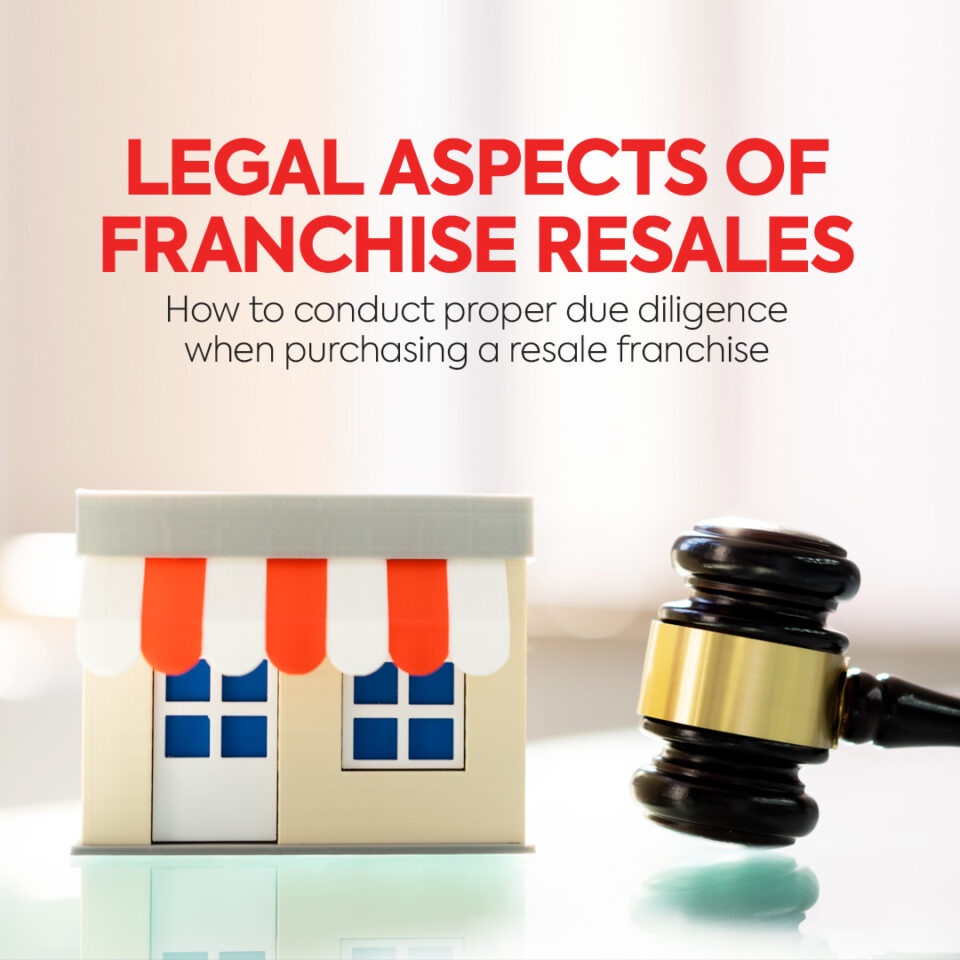How to conduct proper due diligence when purchasing a resale franchise
By Joseph Adler, Hoffer Adler LLP
The first question most, if not all, prospective franchisees ask of a potential franchisor is, “How much money can I make?” This is a very reasonable question, given that many prospective franchisees are investing their life savings in purchasing their franchise. Very seldom, however, do franchisors provide their prospects with a satisfactory response.
Many will claim that they’re “prohibited” from providing any such claims, though they’re not forbidden from doing so by franchise disclosure legislation. The franchise disclosure legislation, in fact, permits such financial performance representation disclosures, even when they do not compel them. Some franchisors will voluntarily provide historical claims, but they are in the minority, at least in Canada.
One possible way that a prospective franchisee may obtain historical sales information is by requesting to purchase an existing, operating franchise. This way, the prospective franchisee could obtain historical sales and expense information from the existing owner of the franchise, whether the selling owner is a franchisee, the franchisor itself, or an affiliate of the franchisor.
A prospective franchisee in this resale scenario should receive from the franchisor not only a disclosure document that provides insights into the brand and system in question, but also particularized information regarding the franchised business being offered for sale.
Unlike a typical scenario involving the sale of a new franchise, the disclosure document will also contain certain documents pertaining to the sale of the existing business, such as an asset purchase agreement and other asset purchase related documents, the real property lease, other material contracts, and sales information within the possession of the franchisor.
In effect, there are three transactions involved in a resale scenario. The first involves the franchisor, whose consent is almost always required for the franchise transfer. The second transaction will often require the landlord’s approval, or, at a minimum, written notice to the landlord, depending on the transfer conditions set out in the lease. The third involves the actual asset purchase and sale transaction with the transferring franchisee who wishes to sell the franchise.
So, while the prospective franchisee in a resale scenario is afforded more opportunities to obtain critical information regarding the franchise being purchased, they need to understand that they will inevitably incur increased due diligence costs and professional fees (legal, accounting, business consultant, etc.). This investment in additional cost is often very worthwhile, particularly when a prospective franchisee gains the benefit of an existing location and lease, customers, staff, and cashflow.
If you are interested in purchasing a resale, here are some legal issues to consider:
- As a prospective franchisee, you should recognize that most franchisors will reserve a right of first refusal, which would mean that the applicable franchisor may wish to purchase the franchise from the existing franchisee on the same terms and conditions as set out in the offer you made.
- Franchisors will typically impose various conditions of transfer, so the offer may not necessarily proceed to completion if the franchisor refuses to grant its consent to the transfer. This means, in effect, you might be investing time and money to close the deal but end up being denied approval by the franchisor due to transferor’s issues beyond your control.
- One of these transfer conditions may involve the refurbishment of the franchise, the cost of which would need to be incurred by either the transferor or the transferee, impacting the purchase and sale price.
- Franchisors often require that their prospective franchisees sign their “then-current form of franchise agreement.” This sounds rather innocuous, but this condition may have significant ramifications, especially if the then-current form of agreement significantly varies the core financial terms between the franchisor and franchisee. You should therefore review not only the transferor’s franchise agreement, which will impact the transfer itself, but also the franchisor’s then-current form of agreement, which will dictate your relationship with the franchisor going forward.
Purchasing an existing franchise certainly has its benefits, though prospective franchisees should investigate the underlying reasons for the transferor’s desire to sell the franchise. Conducting the appropriate due diligence is therefore even more critical in a resale scenario, given the additional legal steps that are required to successfully close the deal.
Want to learn more about the pros and cons of buying a resale? Check out the first article in our resale series here.
________________________
Joseph Adler is a founding partner of the franchise law boutique firm of Hoffer Adler LLP (www.hofferadler.com). His firm has represented over 540 franchise systems, including franchisors, franchisees and franchise associations.

